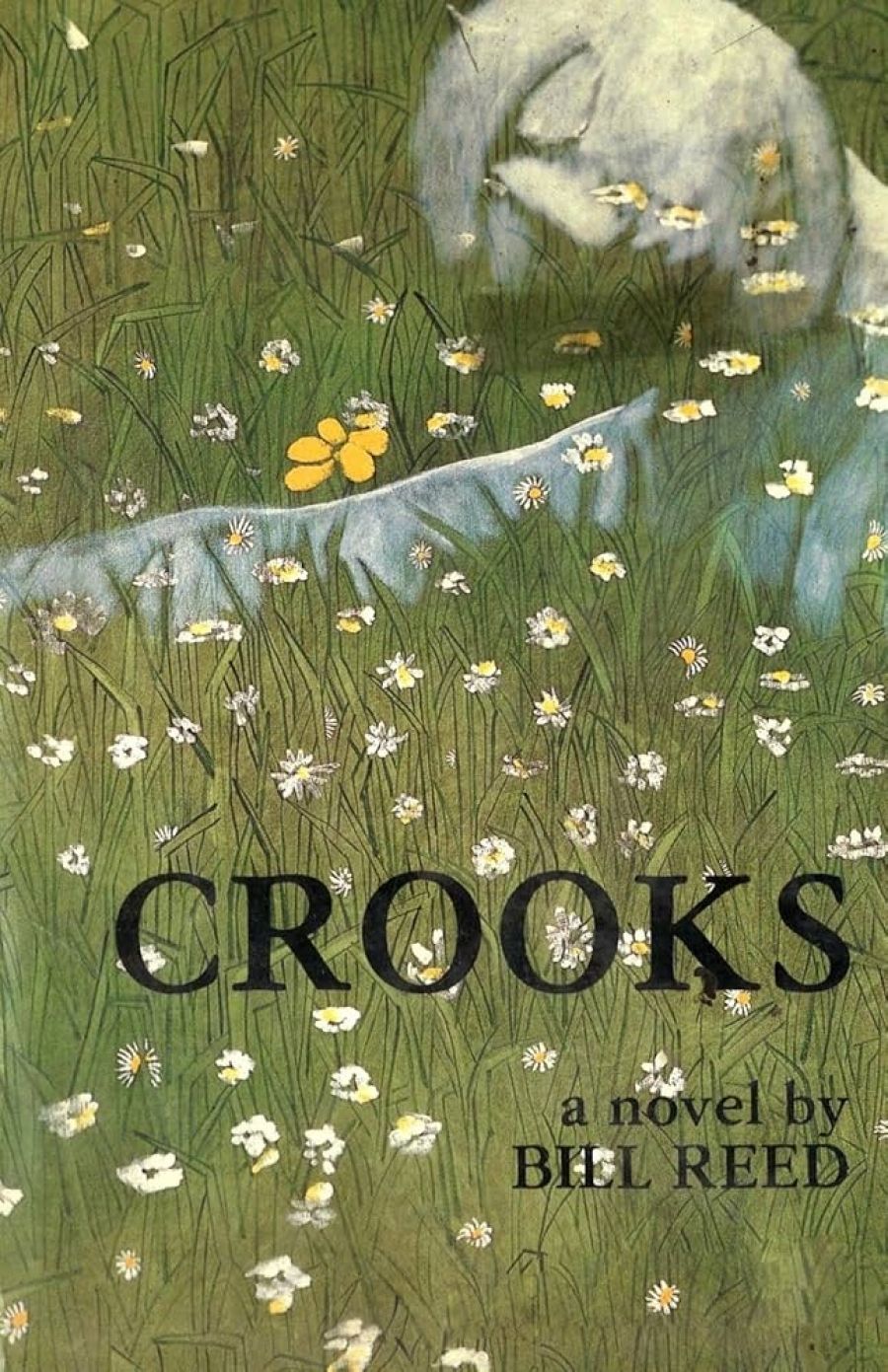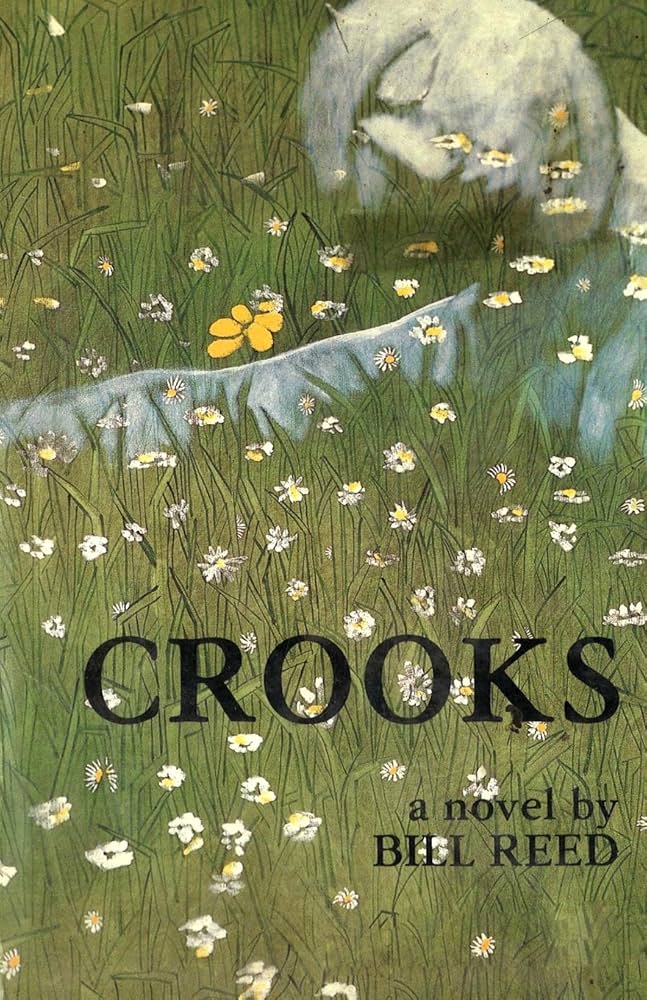
- Free Article: No
- Contents Category: Fiction
- Review Article: Yes
- Article Title: Intellectual Confrontation
- Online Only: No
- Custom Highlight Text:
‘What do you reckon this is? Some kind of joke’ This final ironic cadence to Bill Reed’s sixth novel, with its upbeat question asked of death and the literary establishment, is never resolved; that isn’t Reed’s way. In a grand guignol of a novel, ostensibly about the repercussions of publishing an expose of crime bosses in New South Wales (which Reed actually did as the publisher of Australian books for Macmillan), he sets out to linguistically conceal the agony of caring for an elusive humanity he finds alien and macabre.
- Book 1 Title: Crooks
- Book 1 Biblio: Hyland House, $14.95, 232pp
- Book 1 Cover Small (400 x 600):

- Book 1 Cover (800 x 1200):

It is the same preoccupation that shaped the five novels and 13 plays that precede Crooks. In the plays (he resigned from his highly respected position as part of the Australian theatre’s Avant Grade in 1976 disillusioned with a public that couldn’t keep up with him), theme and language retained a luminosity that the novels rejected. In Dogod the pyrotechnics of verbal inversion are overwhelming. With Stigmata the obsessive leit-motifs of destruction and union, sexual and spiritual, take control. It is only in this novel that the two come into balance.
Crooks is an oedipal tale of one Frank E.R. Stem, the symbolically monstrous son of a corrupt, now suitably senile ex-Commissioner of Police, a one-time POW awarded the VC for some murky goingson in Timor. Whenever this hearth-god appears Reed worships the image with restrained and evocative plain English.
Stein publishes his half-brother Costa’s revelations about Mr Big and Co, thereby unleashing the underworld figures who murder the sibling and set in train a series of Aristophanic events, couched in a very different tongue.
In the drunken, bloody and incontinent riots that ensue Stein and his mates — the great ex-whore, Milly Hunt and journo Flash Gurton, a black bar-fly who shares Stein’s use and abuse of Milly — regress most awfully, their brave, if abusive Austral innocence bludgeoned into impotence by powers beyond their grasp.
Only the intervention of a mysterious Oriental genie sent from Stein senior’s wartime past prevents the obvious from happening. Milly goes, back into business, as is the way of women, trailing Flash, but Stein, mocked by his horrendous twin offspring, incestuous and arch, drags off to die of cancer beside his decaying father, destroyed from within.
On the surface it’s an hilarious crescendo of a journey by an antipodean Candide who has no intention of staying within the bounds of credibility, but Reed’s glittering work-face is deceptive. Behind the fashionable if vertiginous high-speed juggling with words lies an inner-sanctum of unresolvable pain.
In the plays Cass Butcher Bunting and Truganini, and in the third novel, Me The Old Man, the aching compassion goes on near-unbearable display. In the recent a lyric-comic tone and high style veil the festering.
But in Crooks the mystical and misplaced loves of the Jewish Stein (a chosen one who refuses the choice in order to drown in deep bottles), well up like clear spring waters.
Reed’s novels are difficult, aggressive, layered. Like the plays, they explore the limits of language, behaviour and the psyche with such angry, raw-edged insistence that the reader is left jolted every time wanting to intellectual answer back.
A novel of intellectual confrontation is rare enough in Australian literature, but when it comes as Crooks does, in the guise of a parodied and flawed crime-thriller it is doubly unexpected. Crooks is an intentionally uncomfortable novel, overdrawn, relentless in its tightly cyclic form, which is only relieved by its blowsy humour, but its symbolism, engulfing and dual as it is, is what remains in the memory. Pulling against control and against classification, Crooks is a novel easily dismissed but not easily reckoned with.


Comments powered by CComment